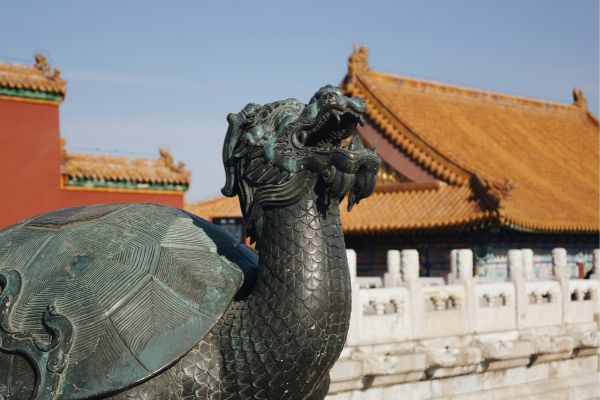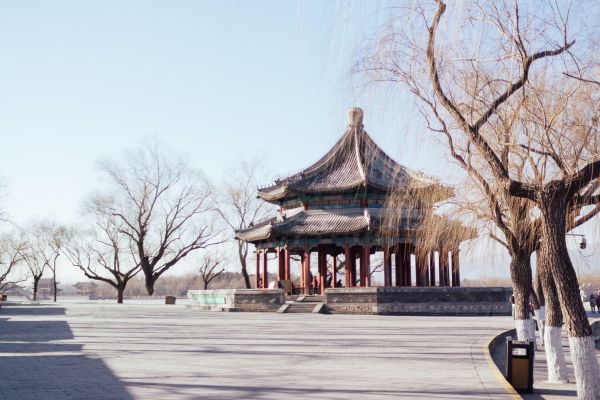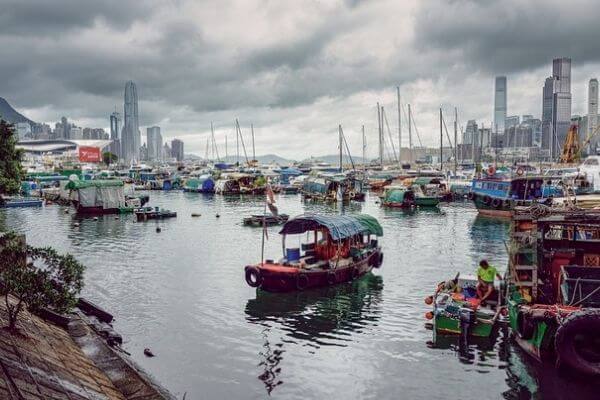
On 1st July 2018, Tianjin Maritime Court of China rendered a ruling against the recognition and enforcement of an arbitral award made by Patrick O’Donovan, a sole arbitrator, in London(hereinafter referred to as “the 2018 case”), on the grounds that the arbitral award violated China’s public policy.
This is the second time that China has refused to recognize foreign arbitral awards on the grounds of public policy since its accession to the New York Convention in 1986, exactly 10 years after the landmark case of Hemofarm, where the Ji’nan Intermediate People’s Court refused to recognize the arbitral award made by the International Court of Arbitration of the International Chamber of Commerce (ICC) in 2008 (hereinafter referred to as “the 2008 case”). [1]
Chinese courts’ views in the 2018 case and the 2008 case can be summarized as follows.
In the 2018 case, the parties concerned applied for arbitration in a foreign country even when the Chinese court had already affirmed the invalidity of the arbitration agreement. The Chinese court held accordingly that the arbitral award violated China’s public policy.
In the 2008 case, the Chinese court held that the arbitral award contained decisions on matters not submitted to arbitration and violated China’s public policy at the same time.
I. Overview of the 2018 Case
1. Case summary
The applicant Palmer Maritime Inc., a bareboat charterer, and the respondent China Animal Husbandry Industry Co., Ltd. ("CAHIC"), the holder of the bill of lading, disputed over the indemnification for cargo damage.
(1) The Chinese Court affirmed the invalidity of the arbitration clause
In May 2016, CAHIC filed a lawsuit with Guangzhou Maritime Court for the loss of the goods, requesting Palmer to bear the liability for indemnification for cargo damage. Palmer raised an objection to jurisdiction on the grounds of an arbitration agreement between the two parties. On 16 Oct. 2017, Guangzhou Maritime Court ruled that the arbitration clause involved was invalid and Palmer’s objection to jurisdiction shall be dismissed. After Palmer’s appeal, Guangdong High People’s Court made a civil ruling “[2017] Yue Min Xia Zhong No. 857” ([2017]粤民辖终857号), dismissing Palmer’s appeal on 30 Jan. 2018.
(2) The parties applied for arbitration
After the Chinese court found the arbitration agreement to be invalid, Palmer Maritime Inc. still initiated arbitration in London and appointed an arbitrator. CAHIC did not participate in the arbitration.
On 9 Sept. 2016, the sole arbitrator Patrick O’Donovan rendered an arbitral award.
(3) The parties applied for recognition of the arbitral award with the Chinese court
Palmer applied for recognition and enforcement of the arbitral award to the Tianjin Maritime Court. Tianjin Maritime Court accepted the application on 3rd Jan. 2017.
Tianjin Maritime Court held that:
i. Under the New York Convention, an important prerequisite for the recognition and enforcement of arbitral awards is that the existence and effectiveness of the relevant arbitration clauses are recognized by the court of the State where recognition and enforcement was sought.
ii. Guangzhou Maritime Court of China has already found the arbitration agreement involved in the case to be invalid. At this point, should the arbitral award be recognized by Tianjin Maritime Court, such decision would undoubtedly conflict with the ruling of Guangzhou Maritime Court.
iii. The public policy under the New York Convention should include the unification of laws and the uniformity of results within one State.
iv. This case falls under Article V(2)(b) of the New York Convention, that is, the recognition of the arbitral award will violate China’s public policy.
Tianjin Maritime Court, therefore, ruled that it refused to recognize the foreign arbitral award on the grounds of public policy.
2. Notes (extended questions)
What if the parties concerned obtain a foreign arbitral award before the arbitration agreement being found invalid by the Chinese court?
In this case, the arbitral award does not violate China’s public policy, and the Chinese court can, therefore, recognize and enforce the same.
The Chinese court has demonstrated this view in Castel Electronic Pty Ltd. vs. TCL Air Conditioner (Zhongshan) Company Ltd.
In that case, the ICC International Court of Arbitration made two arbitral awards respectively on 23rd Dec. 2010 and 27 Jan. 2011. The Chinese court made a ruling on the invalidation of the arbitration clause on 20 Dec. 2011. The arbitral awards were made earlier than the Chinese court’s ruling. Moreover, TCL did not raise an objection to the invalidity of the arbitration clause in the arbitration procedure, but made a counterclaim with the arbitral tribunal, upon which the arbitral tribunal affirmed the validity of the arbitration clause and its jurisdiction therefor.
According to the foregoing, the Supreme People’s Court (SPC) of China holds that although there is a conflict on the validity of the same arbitration clause between the foreign arbitral awards and the effective ruling of the Chinese court, it is not enough to constitute a violation of China’s public policy. [2]
II. Review of the 2008 Case
The applicants Hemofarm DD and MAG International Trade Inc. signed a cooperation agreement with the respondent Ji’nan Yongning Pharmaceutical Co., Ltd. ("Yongning"), according to which a joint venture company was established in China. Thereafter, disputes arose between the joint venture company and Yongning over leasing matters.
1. The Chinese Court affirmed that the arbitration agreement did not apply to the lease dispute.
On 6 Aug. 2002, Yongning brought a case to Ji’nan Intermediate People’s Court, requesting the joint venture company to pay the rent and return some of the leased property.
The joint venture company raised an objection to jurisdiction and asserted that the lease dispute should be arbitrated by the ICC International Court of Arbitration according to the joint venture contract. Ji’nan Intermediate People’s Court held that the lease dispute shall not be governed by the joint venture contract, and therefore dismissed the objection to jurisdiction raised by the joint venture company.
On 5 Mar. 2005, Ji’nan Intermediate People’s Court made a first instance judgment, supporting Yongning’s request. On 18 Oct. 2005, Shandong High People’s Court made a final judgment, affirming the first instance judgment.
2. The parties applied for arbitration
On 3rd Sept. 2004, Hemofarm DD, MAG International Trade Inc. and Sulame Media Co., Ltd. filed an arbitration against Yongning in the ICC International Court of Arbitration, requesting the resolution of joint venture disputes and lease disputes. The ICC International Court of Arbitration adjudicated on joint venture disputes and lease disputes, and made an arbitral award accordingly.
On 16 Mar. 2007, the respondent Yongning received the arbitral award from the ICC International Court of Arbitration.
3. The parties applied for the recognition of arbitral award with the Chinese court
In Sept. 2007, the aforesaid three applicants applied to Ji’nan Intermediate People’s Court for recognition and enforcement of the arbitral award.
The SPC held that:
(1) The arbitration clause, in this case, does not involve the lease dispute. Thus the ICC International Court of Arbitration’s award on the lease contract dispute contains decisions on matters not submitted to arbitration.
(2) The Chinese court has ruled on whether the arbitration clause involves the lease dispute or not, and preserved the property of the joint venture company and rendered a judgment therefor. At this point, the ICC International Court of Arbitration’s trial and adjudication on the lease dispute violates China’s judicial sovereignty and the jurisdiction of Chinese courts.
According to the opinions of the SPC, Ji’nan Intermediate People’s Court refused to recognize the foreign arbitral award on the grounds of public policy.
III. My Comments
Both the 2018 case and the 2008 case face the situation where the parties apply for arbitration after the Chinese court has found the arbitration agreement (wholly or in part) invalid. This may be the most important factor of Chinese courts’ consideration in public policy.
In addition, after more than 30 years of accession to the New York Convention, the Chinese court only refused to recognize two foreign arbitral awards on the grounds of public policy. This shows that China has always been prudent when it comes to the ground of public policy under the New York Convention in cases of recognition and enforcement of foreign arbitral awards.
[1] 《最高人民法院关于不予承认和执行国际商会仲裁院仲裁裁决的请示的复函》([2008]民四他字第11号),http://www.pkulaw.cn/fulltext_form.aspx?Db=chl&Gid=445d02b47bfe3f3ebdfb
[2] 《最高人民法院关于申请人Castel Electronics Pty Ltd.申请承认和执行外国仲裁裁决一案请示的复函》([2013]民四他字第46号),http://www.pkulaw.cn/fulltext_form.aspx?Db=chl&Gid=63a8559603999347bdfb
Cover Photo by Eva Dang(https://unsplash.com/@evantdang) on Unsplash
Contributors: Meng Yu 余萌









